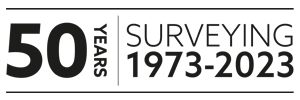The programme runs throughout the calendar year in three Semesters
(Sep to Dec, Jan to Apr, May to Aug).
Each year, Apprentices will typically take two modules in
Semesters 1 and 2, and one module in Semester 3. Most modules take place over an 11-week
period with a single summative assessment in Week 12 or 13, followed by a break
of a few weeks before the next Semester starts. The Professional Research Project module stretches over three Semesters
(May of Year 3 to Apr of Year 4), and is worth 40 credits, while all other modules
are contained within one Semester and are worth 20 credits.
The twelve technical modules focus on the Knowledge and
Skills required by the Apprenticeship Standard. Topics include Finance and Accounting, Health and Safety, Conflict
Avoidance, Sustainability, Digital Built Environment, Contract Practice,
Construction Technology, Procurement and Tendering, Measurement and Costing,
Financial Control, Risk Management, Commercial Management and Planning.
The Academic Practice module introduces the academic skills
that will be applied throughout the rest of the programme. The three Professional Practice modules focus
on the Behaviours required by the Apprenticeship Standards and enabling
Apprentices to recognise and evidence all of the Knowledge, Skills and
Behaviours that they develop over the course of their Apprenticeship. These modules particularly prepare
Apprentices for their End Point Assessment, and also support them in choosing
and working towards the most appropriate professional qualification for them.
Each module
(with the exception of the Professional Research Project) includes one piece of
summative assessment including a range of types such as written reports, poster
presentations, oral presentations with visual aids, annotated spreadsheets,
drawings, online open book timed assessments, and portfolios of work.
Full module information for the programme is available below.
End Point Assessment
The Institute for Apprenticeships and Technical Education (2020) state that - Rigorous, robust and independent End Point Assessment (EPA) gives employers confidence that apprentices can actually perform in the occupation they have been trained in and can demonstrate the duties, and knowledge, skills and behaviours set out in the occupational standard. For details of the current EPA for your standard please consult the IFATE Apprenticeship standards / Institute for Apprenticeships and Technical Education webpage here.
This apprenticeship normally takes 4 years part-time, followed by the endpoint assessment which will typically be completed within 3-12 months. Full details are available on the IFATE website.
 Option for Placement Year
Option for Placement Year Option for Study Abroad
Option for Study Abroad

 This degree
apprenticeship was developed in collaboration with our construction partners,
to meet the requirements of a national contractor market, delivered mainly
online with a blended approach. It will educate and train those in Construction Quantity Surveyor roles across the UK with Level 3 qualifications to progress to graduate level.
This degree
apprenticeship was developed in collaboration with our construction partners,
to meet the requirements of a national contractor market, delivered mainly
online with a blended approach. It will educate and train those in Construction Quantity Surveyor roles across the UK with Level 3 qualifications to progress to graduate level. 












